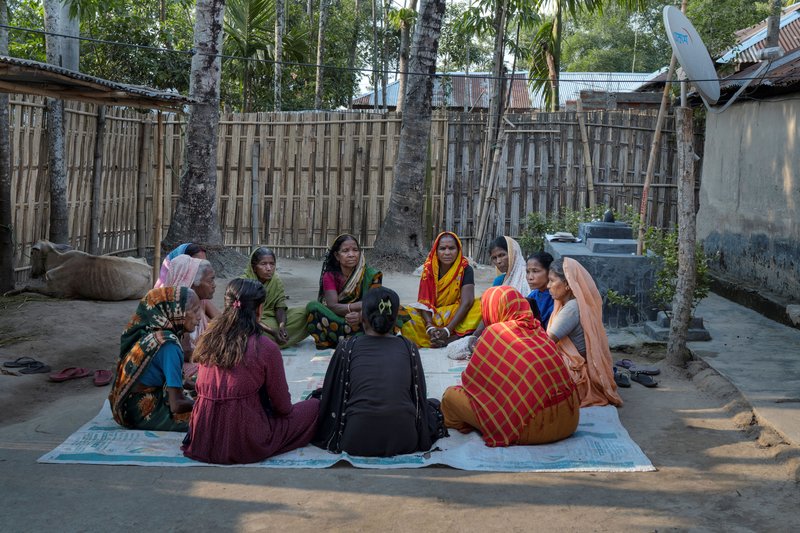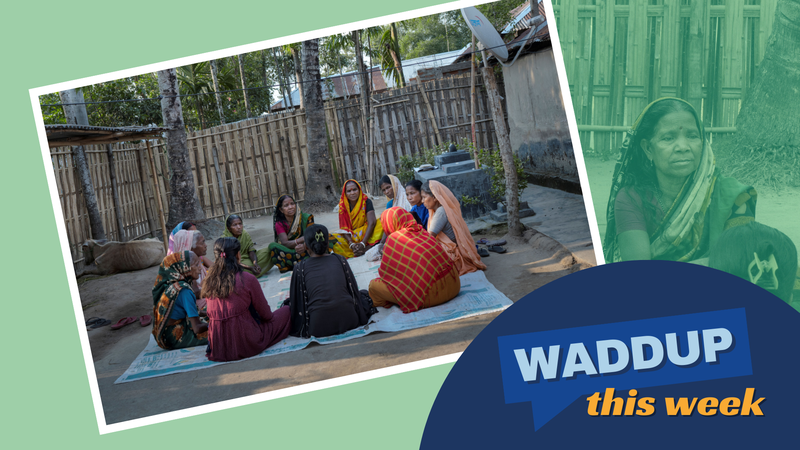The world can be a lonely place, but it doesn’t have to be.
Peter Waddup, CEO - The Leprosy Mission Great Britain
We read in the news that our world has never been lonelier. Research from around the globe reveals people are experiencing record levels of loneliness. Cities can be places the lonely flock to in search of a better life. Bright lights, opportunity and a 24/7 culture can seem the perfect antidote to loneliness. But a new poll reveals that Londoners are lonelier than the rest of the country. The poll by the Belonging Forum, which aims to combat loneliness, reveals over a third of Londoners often feel lonely.
The results could be skewed by young people migrating to London for opportunities the big smoke offers. But in reality, it can be hard to find friendship groups and build the life and dreams a person hopes for. I can relate to this.
I left home aged 16 due to a difficult couple of years at home. With no qualifications, I moved to greater London as there were more work opportunities. For several years I lived in various bedsits staring at the same four walls night after night.
Loneliness engulfed me and I used to walk the streets and visit local pubs just to feel like I was in the company of others. Temporary and unhealthy friendships were formed because the alternative was going back to what felt like my own personal prison cell. Loneliness can lead you into times of despair and depression. I was fortunate to eventually meet good people who looked after and befriended me.
I am reminded of this time in my life when I travel to communities affected by leprosy in Asia and Africa. Many of the young people I meet face a future of loneliness and isolation.
If you have leprosy and it is not treated, nerve damage soon causes visible signs of the disease. Your fingers bend into your palms like a claw and won’t straighten. In Asia, with the traditional greeting of Namaste, with fingers straight and palms placed together, such disabilities are instantly recognisable. Stigma and discrimination soon follow, and you lose friends, community and even family.
How would you feel if you were shunned by everyone? Where would you go? Community is in our DNA. People affected by leprosy are unwanted by society so it’s no surprise that they build community together. There’s a camaraderie of having a shared experience, however awful that might be. It’s heart-warming to see people affected by leprosy welcome a new person into their community. They share everything they have with them. It’s emotional to witness this generosity of spirit. It’s enough to restore your faith in humanity.

My colleagues overseas work to bring isolated and lonely people into community through self-care groups. The initial aim of the group is to teach people affected by leprosy to help each other to care for hands and feet that have lost feeling because of the disease. This helps to prevent minor injuries which can easily lead to infection and the loss of limbs. The welcome by-product of these groups, however, is lifelong friendship! Many people affected by leprosy say the groups are the social highlight of their week.
At our flagship hospital in Nepal, Anandaban, group counselling encourages patients to share their burdens as they begin their healing journey. A team in Nigeria helps over 500 youngsters to come together to overcome depression and anxiety caused by leprosy. It is incredible to witness their self-esteem grow with friendship and someone to talk to! It’s community.
People affected by leprosy have the same potential as anyone else. As you can imagine, they need opportunities to reintegrate and become valued members of society. Education, vocational training and employment opportunities are such an important part of The Leprosy Mission’s work. But acceptance only comes with improving awareness, both of leprosy and disability. So we go into communities, schools, businesses and faith gatherings to help people understand that they don’t need to fear this disease.
Leprosy needs to be eradicated. It will take time and investment, but it is possible. And with your help, it is possible in our lifetime. Will you join me to make this dream happen? If you’d like to find out more about the difference you can make, please get in touch.
